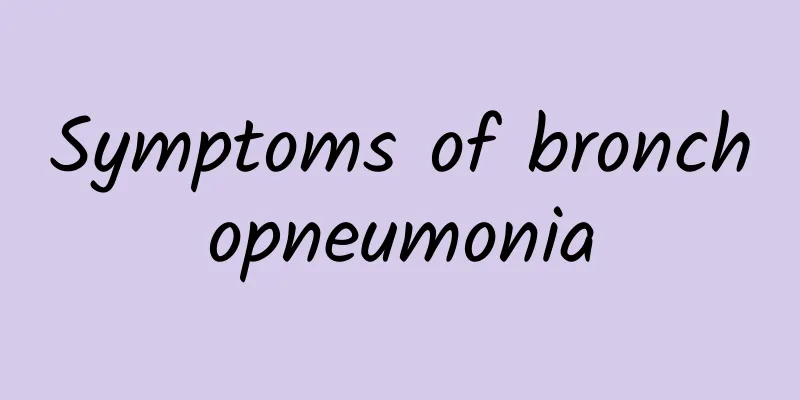What are the symptoms of typhoid fever?

|
Typhoid fever is an acute intestinal infectious disease that is relatively common in clinical practice. The disease is mainly caused by Salmonella typhi. Among them, the symptoms of typhoid fever are relatively obvious, and the symptoms of different types of typhoid fever are also significantly different. The symptoms of typhoid fever vary at different age groups. (1) Lightweight: The fever is around 38°C, the systemic toxemia symptoms are mild, the course of the disease is short, and recovery can be achieved in 1 to 3 weeks. There are not many symptoms, and there is a lack of typical typhoid manifestations, which can easily lead to misdiagnosis and missed diagnosis. Cases in children are not uncommon, and can also be seen in those who have received typhoid vaccine vaccination before the onset of the disease, or those who have been treated with effective antibacterial drugs in the early stages of the disease. (2) Fulminant (severe): The onset is acute, the symptoms of toxic blood are severe, the condition is dangerous, and it progresses rapidly. There are chills, high fever or excessive fever, abdominal pain, diarrhea, shock, toxic encephalopathy, toxic myocarditis, toxic hepatitis, toxic enema, and it may also be complicated by DIC. If it can be diagnosed early and treated and rescued in time, it is still possible to be cured. (3) Protracted type: The initial symptoms of the disease are the same as those of the common type (typical). Due to the low immunity of the body, the fever persists and may last for several months. It is a remittent or intermittent fever type. The hepatosplenomegaly is also more significant. Patients with typhoid fever accompanied by chronic schistosomiasis often have this type of symptoms. The antimicrobial drug treatment for such patients is not satisfactory, and sometimes anti-schistosomiasis treatment is required to control the disease. (4) Carefree type: The symptoms of systemic toxic blood are mild, and patients often live and work as usual without realizing they are ill. However, some patients may suddenly develop intestinal bleeding or intestinal perforation and seek medical attention. (5) Setback type: The onset is acute, similar to typical typhoid fever symptoms, but the fever and other symptoms disappear rapidly and the patient recovers in about a week. (6) Typhoid fever in children: The clinical course of typhoid fever in children is atypical, and the younger the age, the more atypical it is; the older the age, the closer it is to the disease manifestations in adults. Typhoid fever in infants and young children has an acute onset and severe condition. Vomiting, abdominal pain, diarrhea and other gastrointestinal symptoms are common. Irregular high fever often occurs, accompanied by convulsions and rapid pulse. Roseola is rare, and the white blood cell count in the peripheral blood is increased, often accompanied by bronchitis or pneumonia. School-age children mostly have mild or abortive types, which are similar to those in adults, with milder illness, shorter course, relatively slow pulse, no decrease in white blood cell count, milder intestinal lesions, and fewer complications of intestinal bleeding and intestinal perforation. (7) Typhoid fever in the elderly: The symptoms are also atypical, with mild fever and obvious weakness. It is prone to complications of bronchopneumonia and heart failure, persistent gastrointestinal dysfunction, memory loss, prolonged course of disease, slow recovery, and a high mortality rate. |
<<: What are the symptoms of scleroderma?
>>: What to do if you have an allergic cough with phlegm
Recommend
How long does it take to treat endocrine disorders with Chinese medicine?
It is actually very scary for women to have endoc...
Out of breath climbing stairs
When we go upstairs, we will all feel out of brea...
What foods can clear and moisten the lungs? Three foods recommended
At present, most people are very supportive of fo...
Is it necessary to get the seven-valent pneumonia vaccine?
The seven-valent pneumococcal vaccine is a must-h...
How to treat cerebral arteriosclerosis effectively
Cerebral arteriosclerosis is more common among mi...
Is there a connection between hiccups and the heart?
I believe everyone has experienced the feeling of...
What causes foot odor?
Smelly feet are very embarrassing, and it is also...
Does wolfberry increase or decrease internal heat?
Wolfberry is a very common health product in dail...
How to treat gallbladder stones
Gallbladder stones mainly occur in adults, with a...
What are the effects of chrysanthemum and rock sugar
If you like to drink tea, you will definitely not...
Efficacy of Qinggong Ejiao Paste
As a traditional health product, donkey-hide gela...
What diseases can cactus cure?
Cactus is a relatively common plant. In addition ...
My neck is itchy due to allergies
The neck is a very sensitive part of the human bo...
How to eat wild vine pear for better health?
The health value of wild vine pear is relatively ...
Can I soak my feet during menstruation?
Foot soaking can bring many health benefits to ou...









